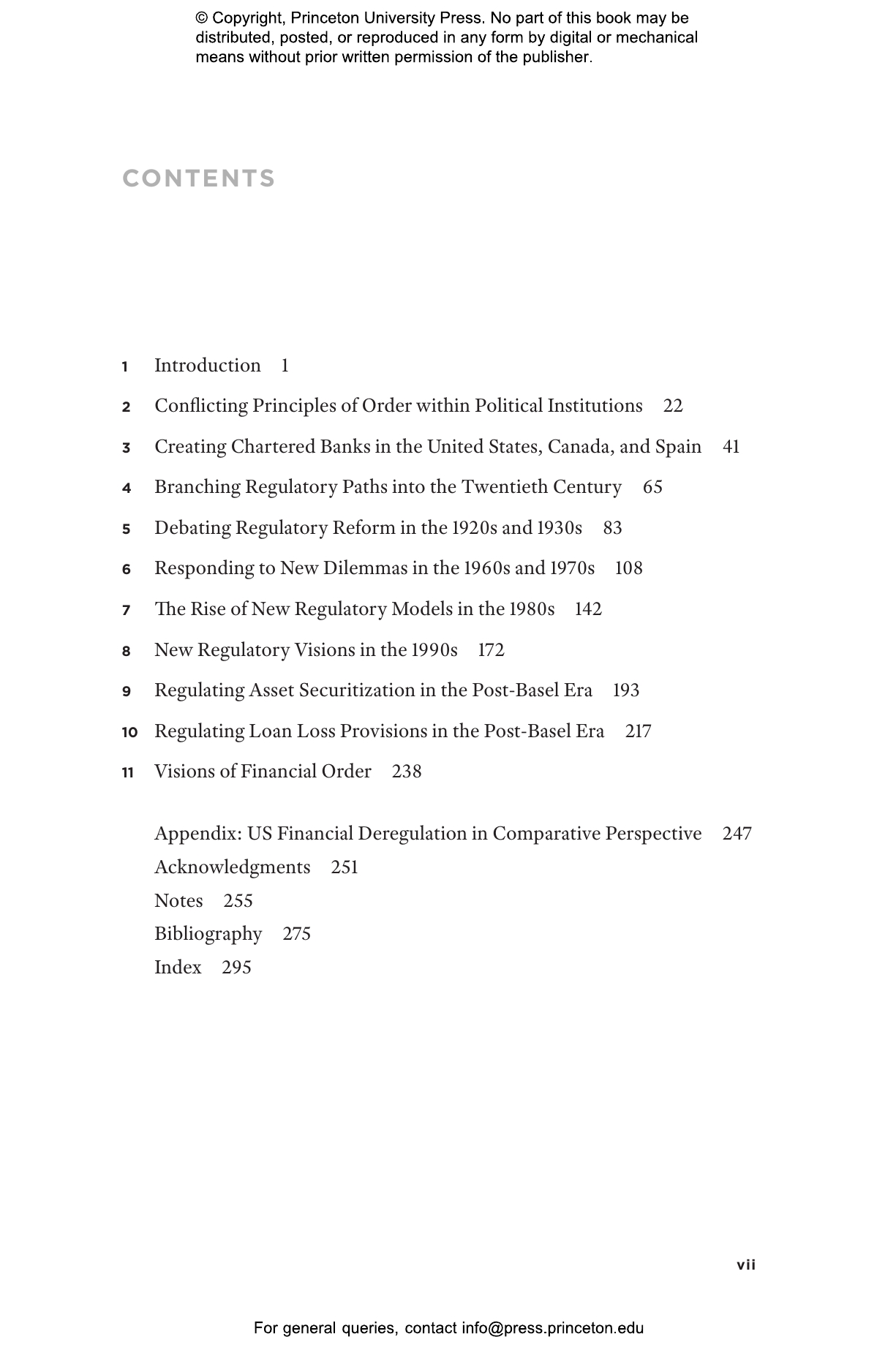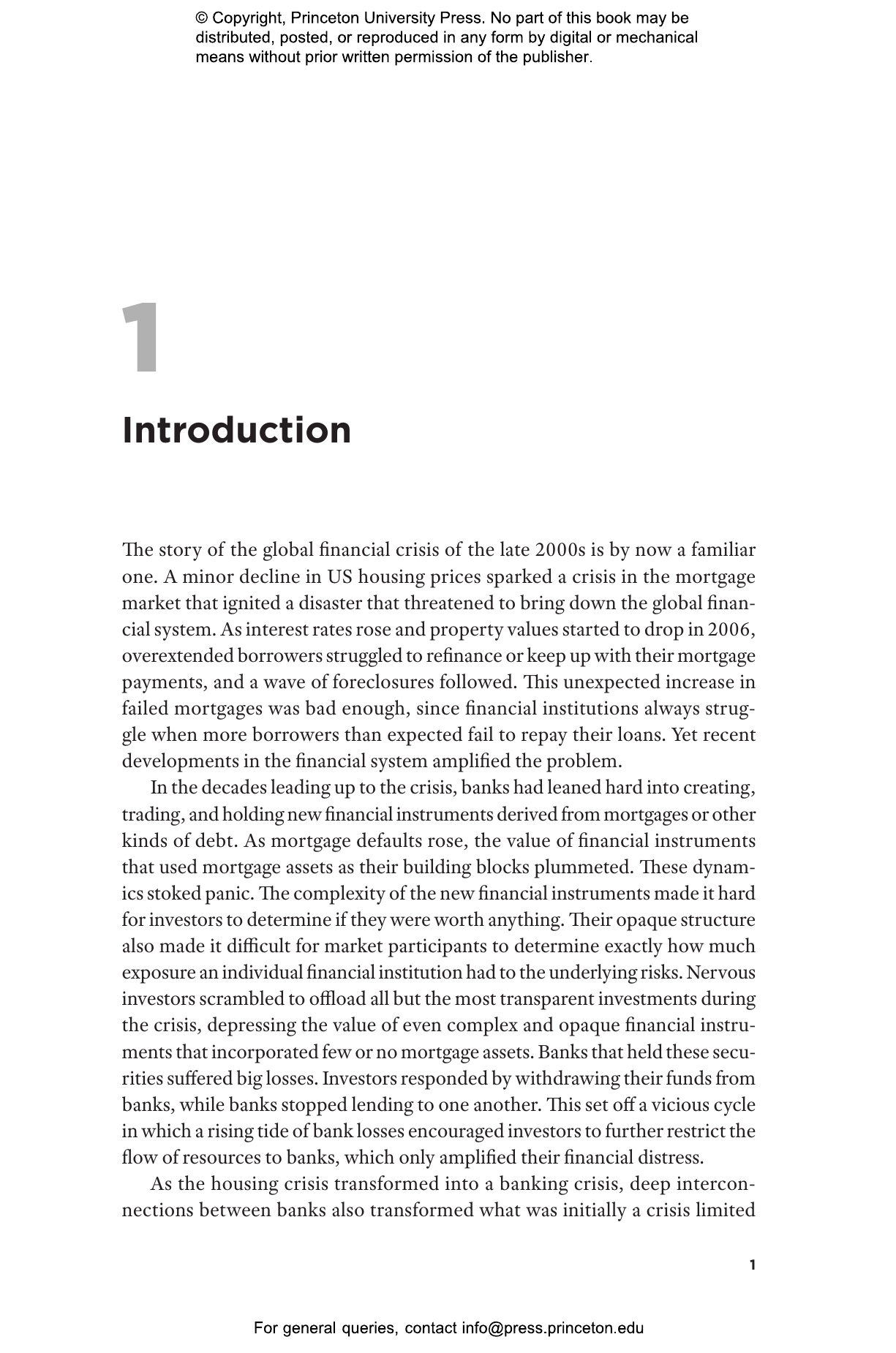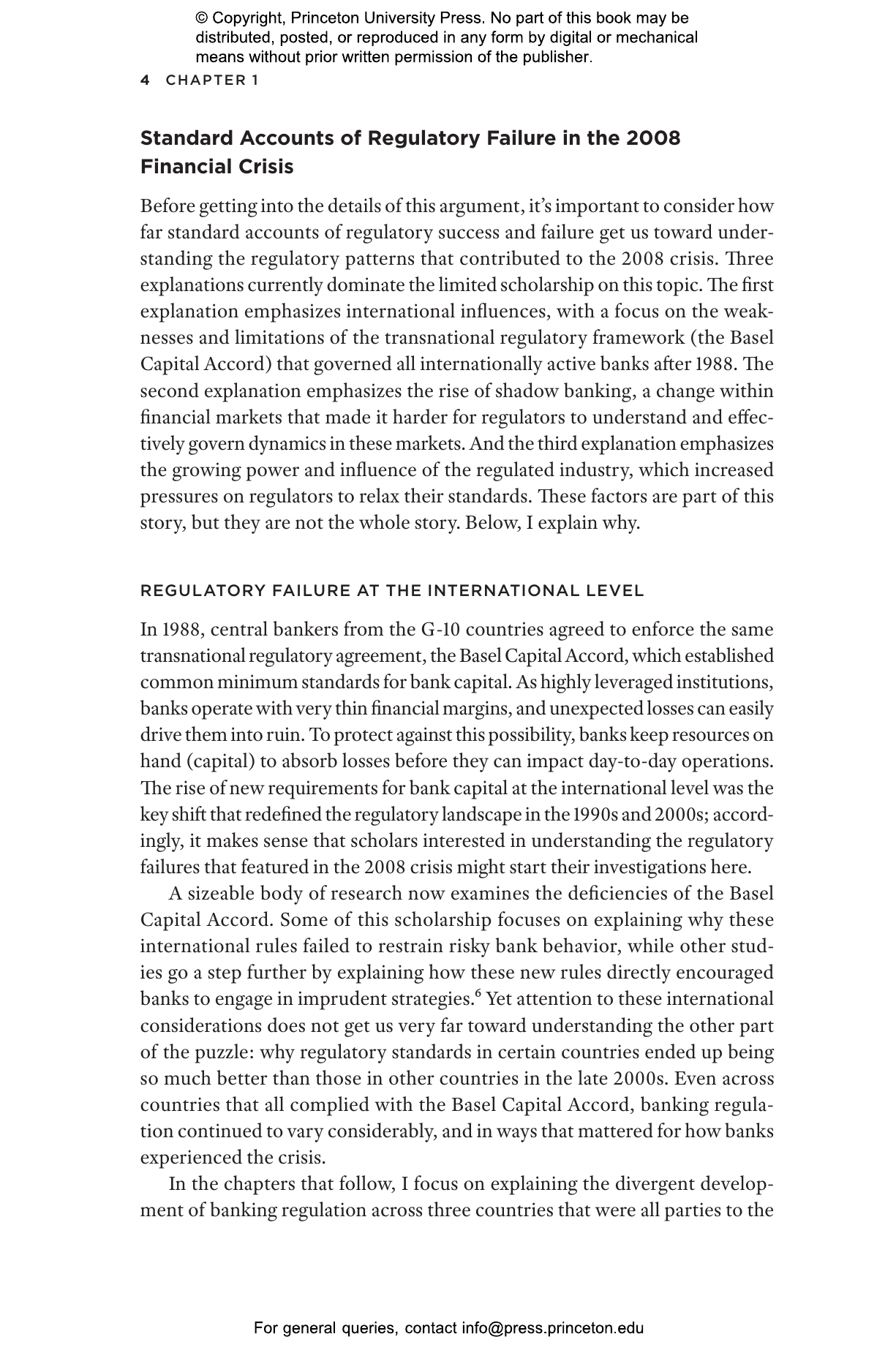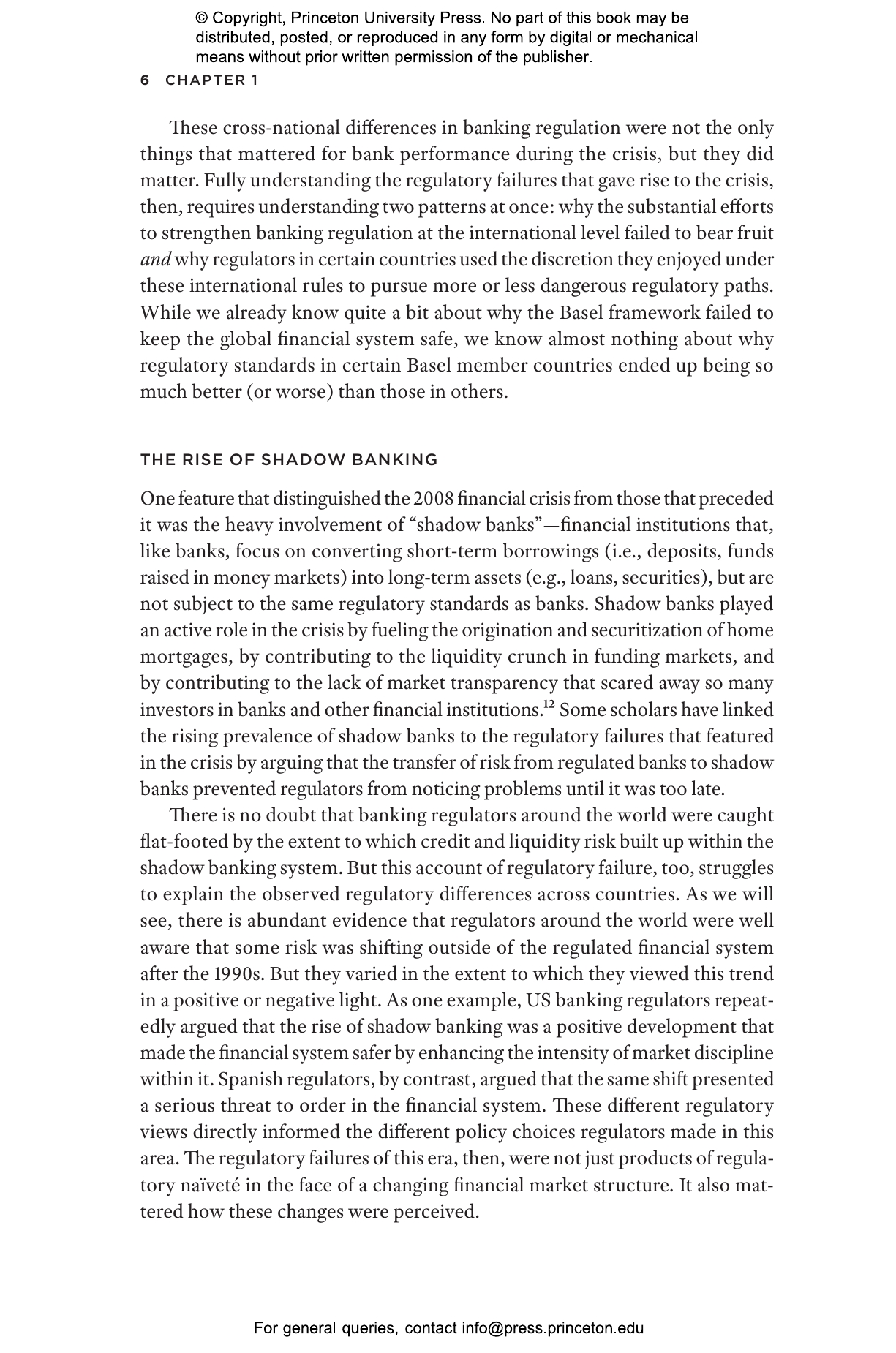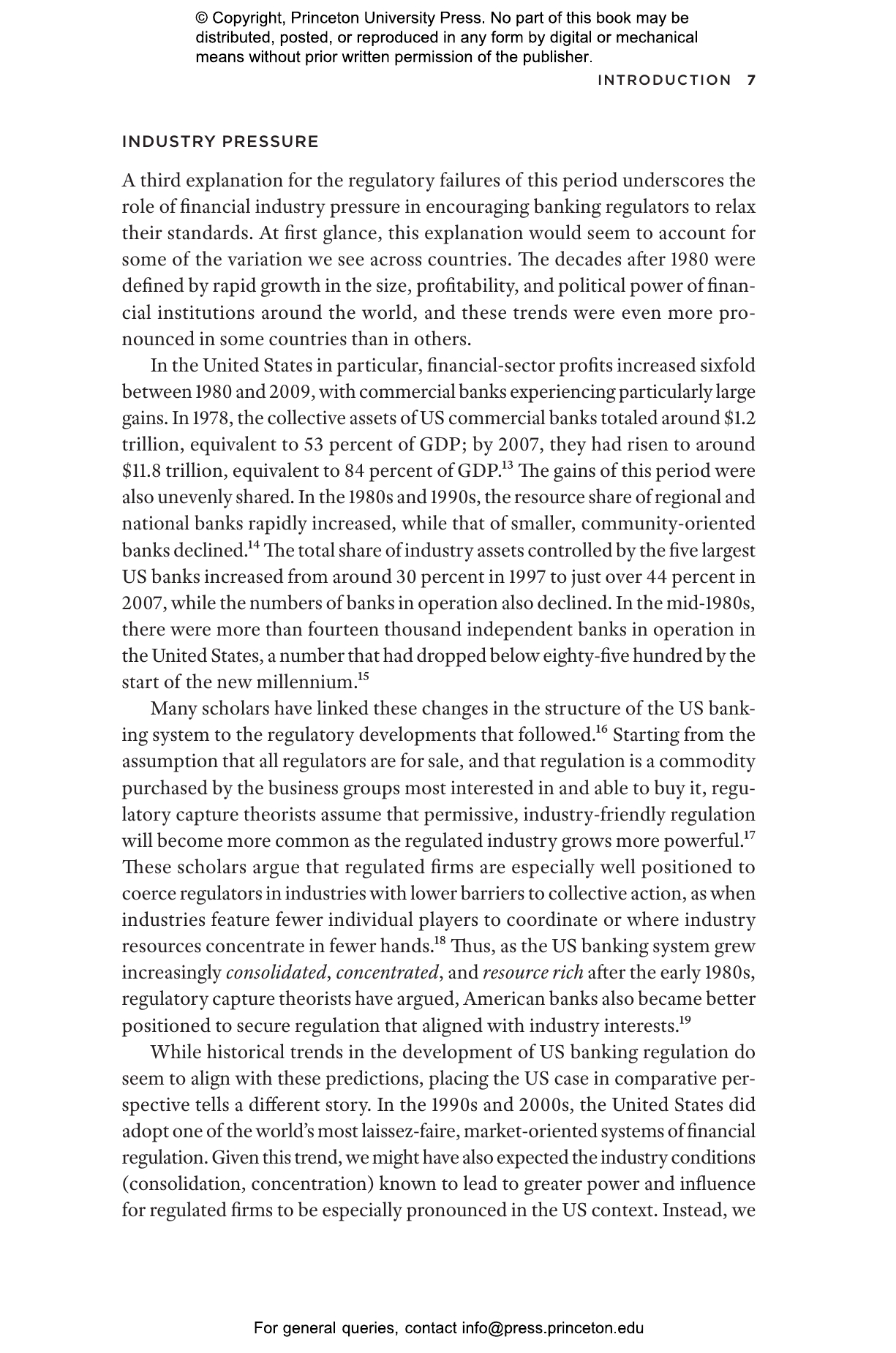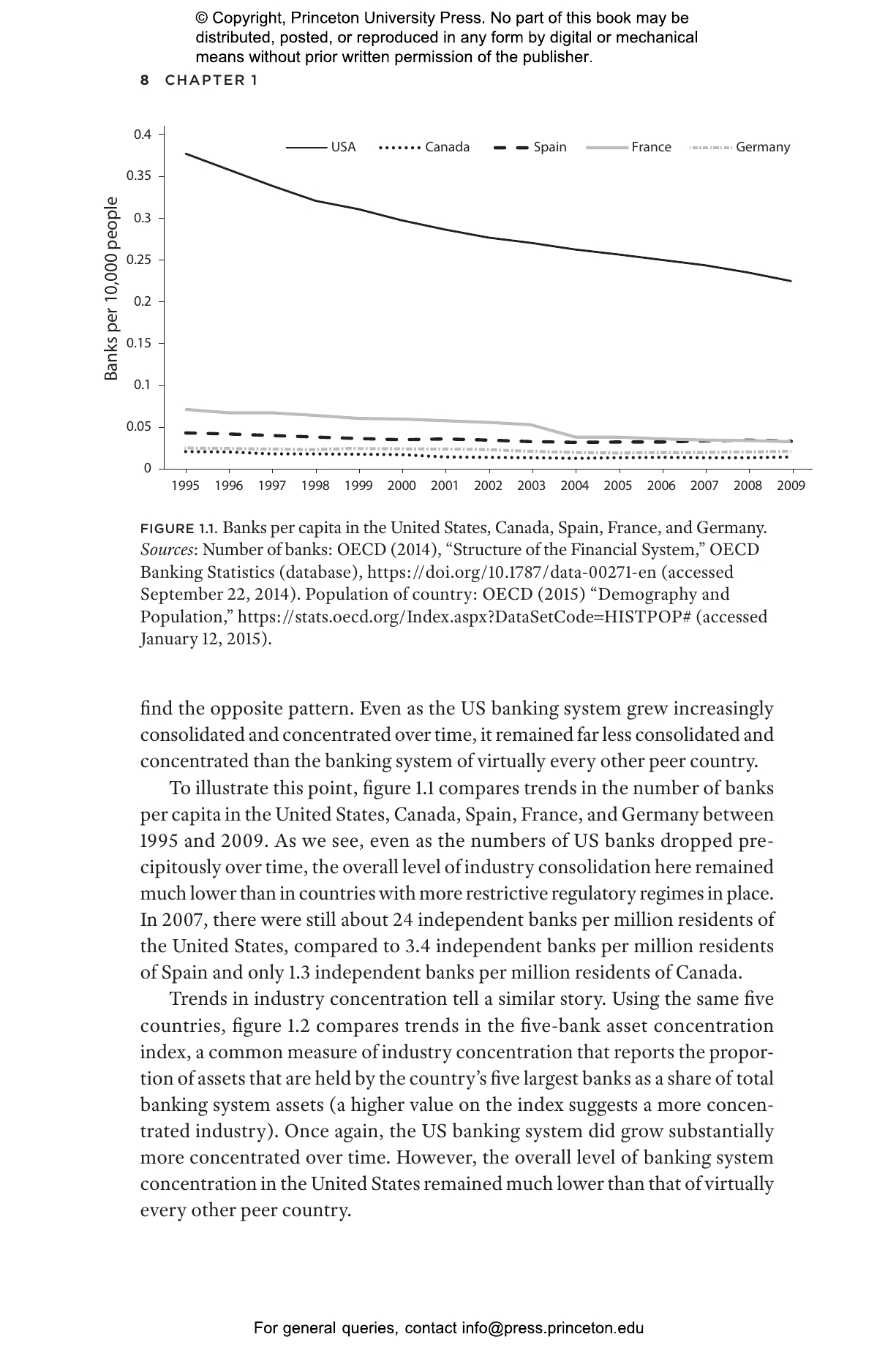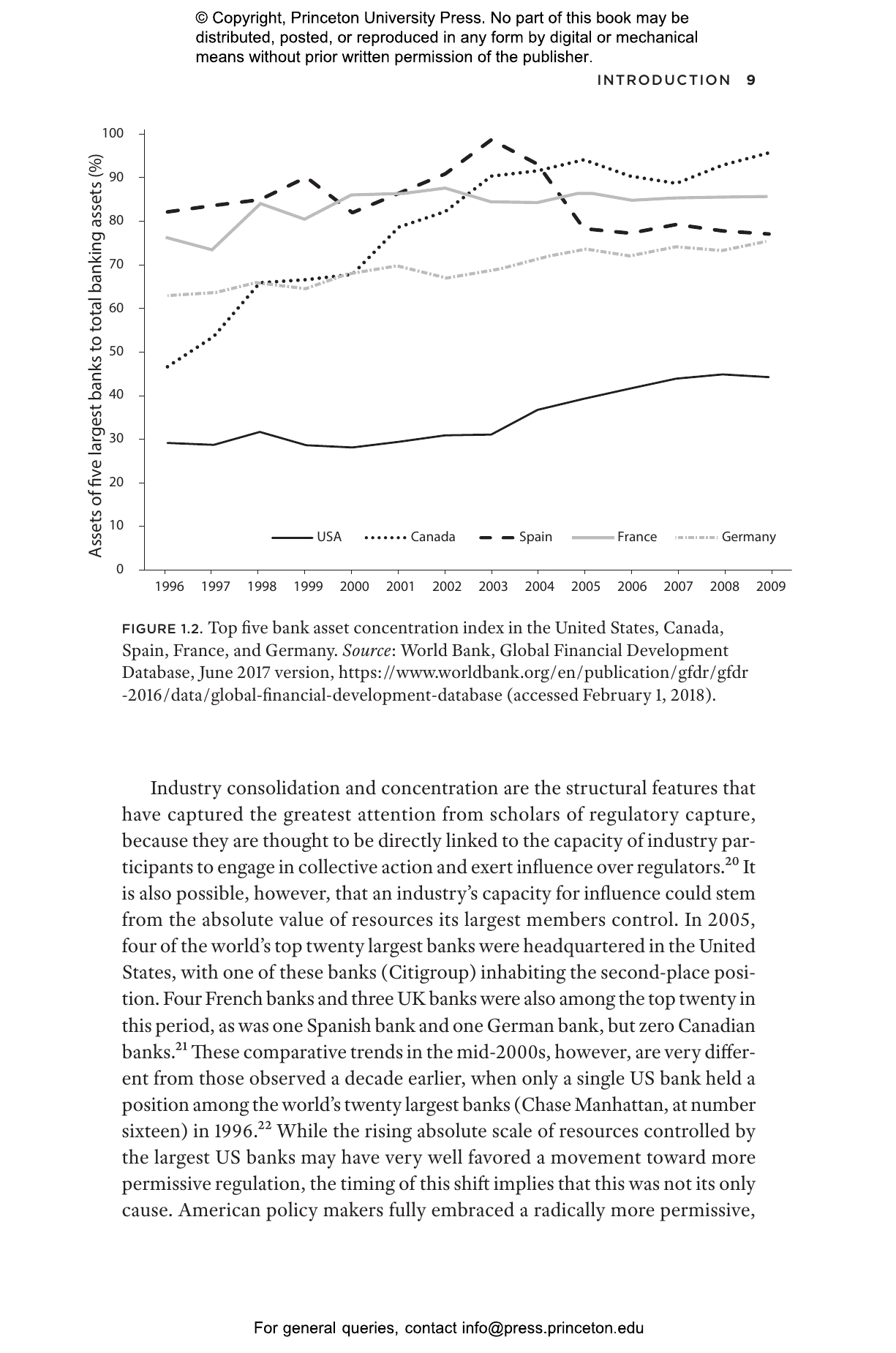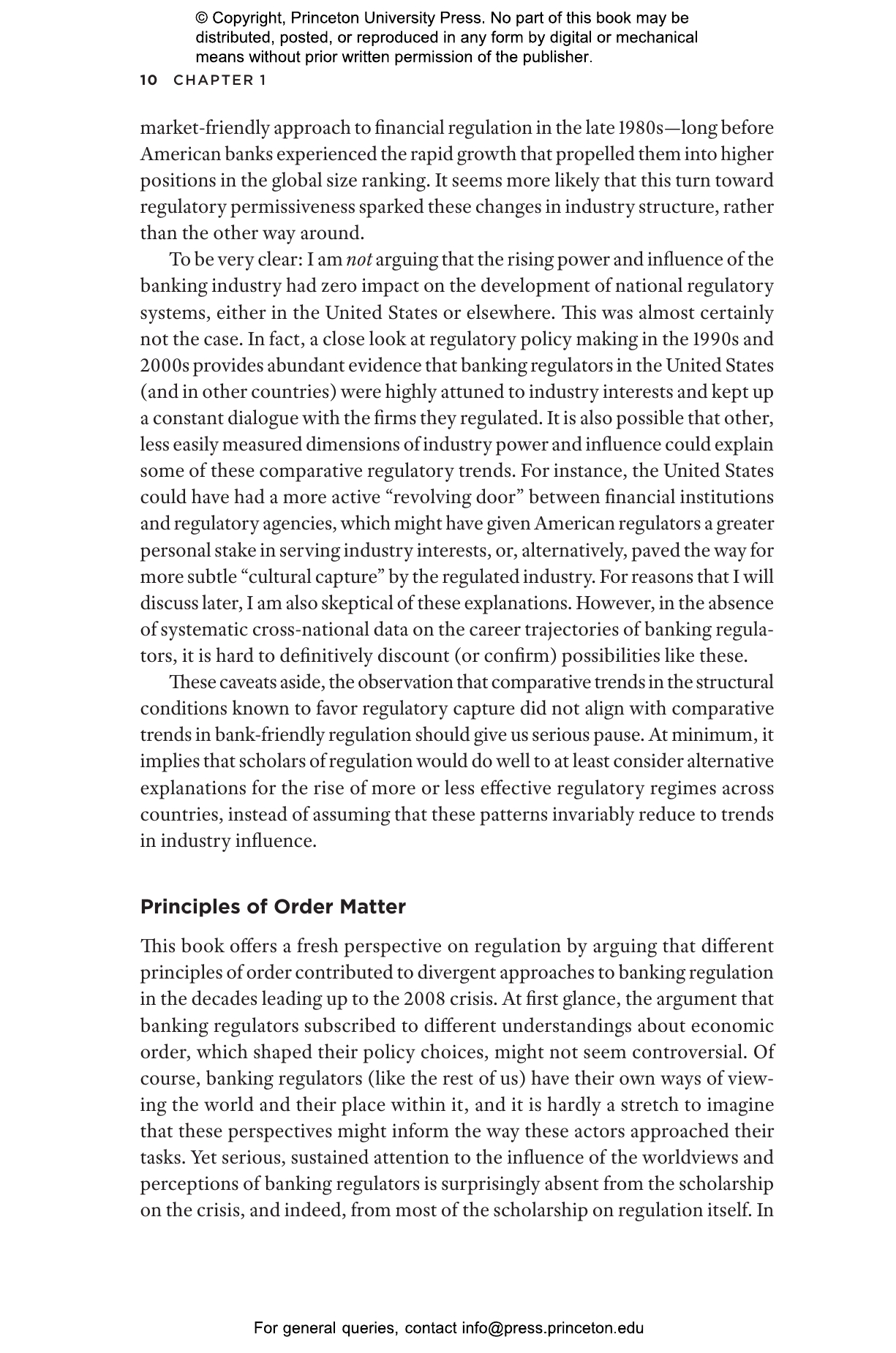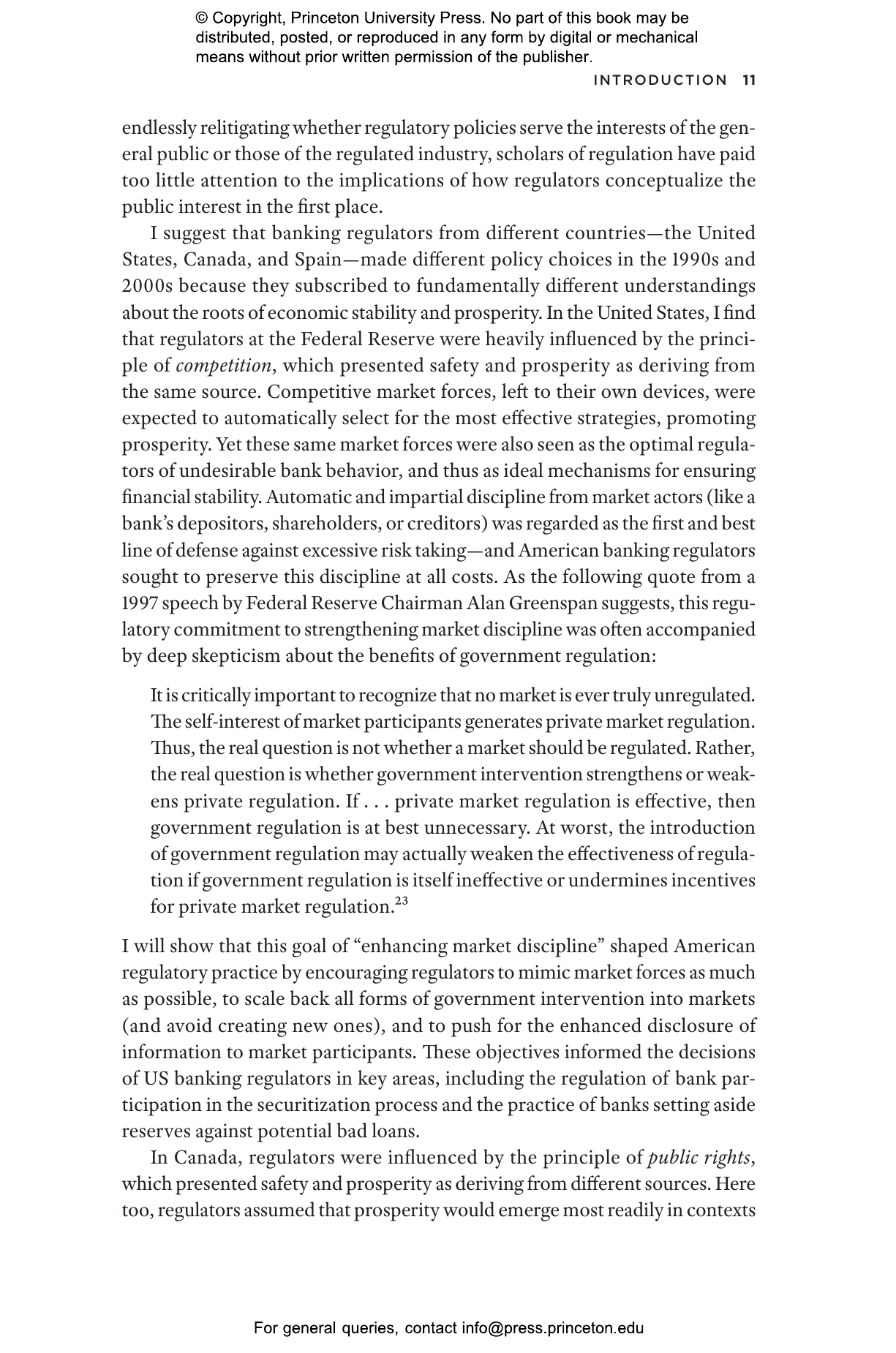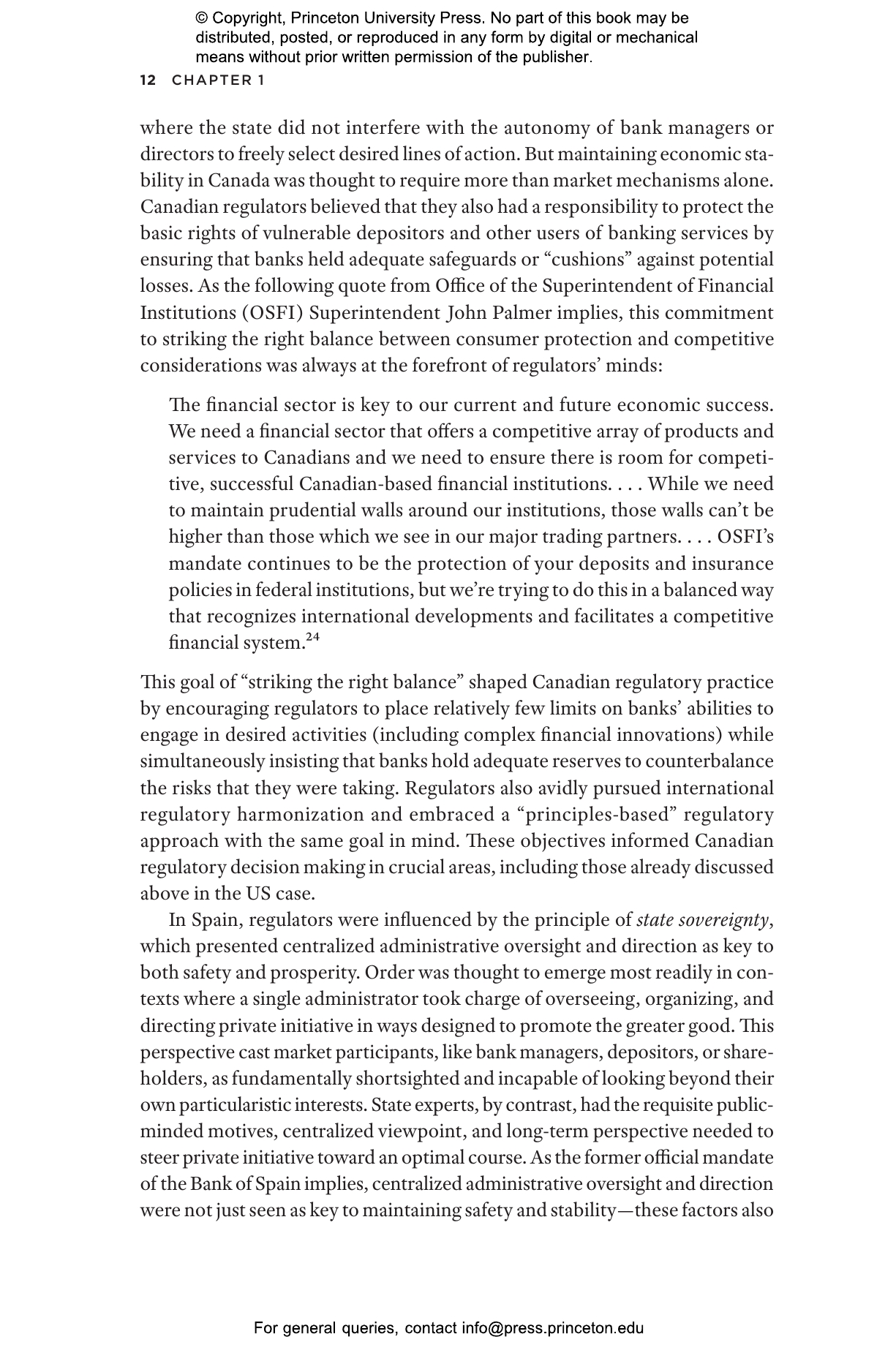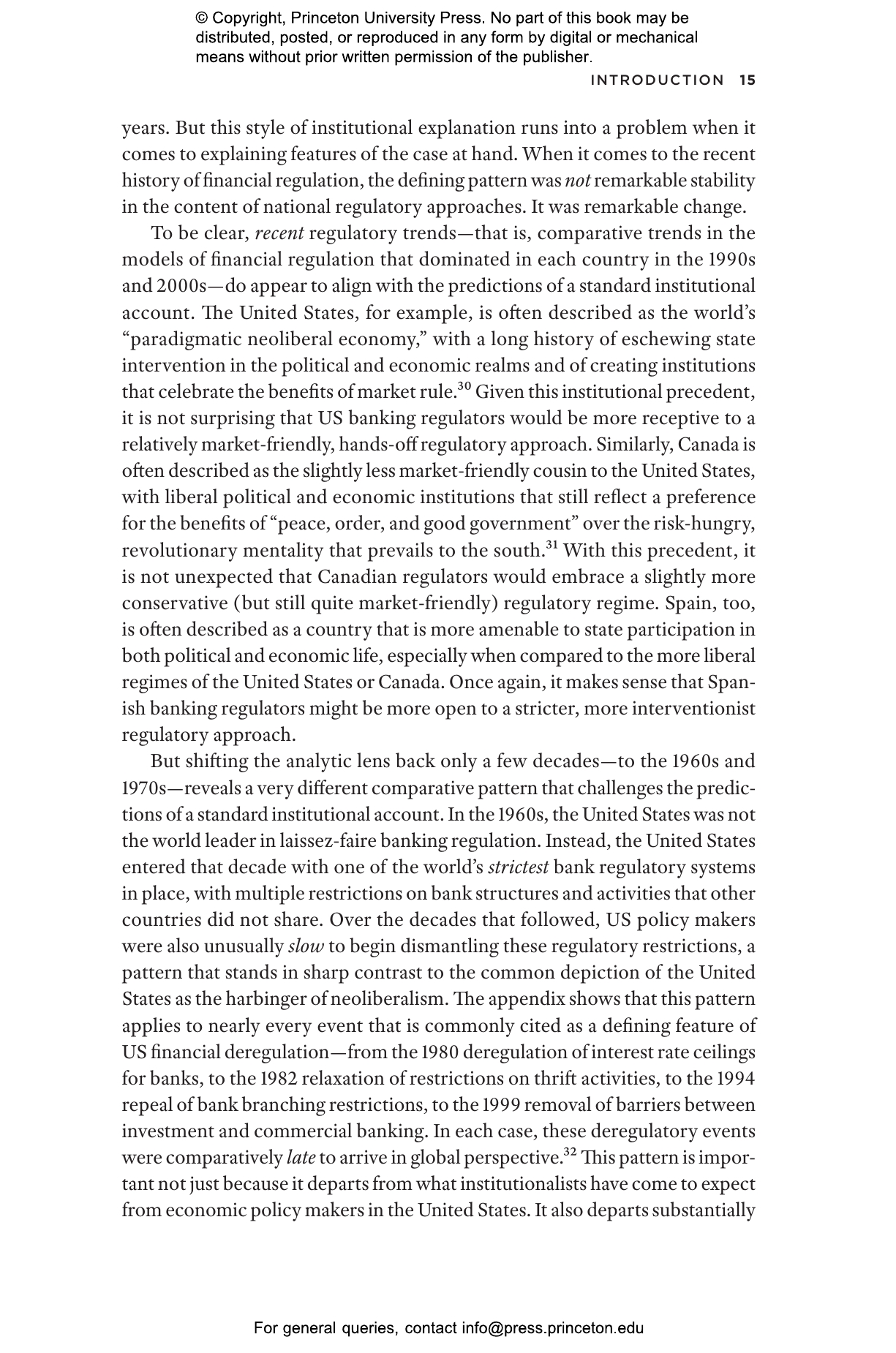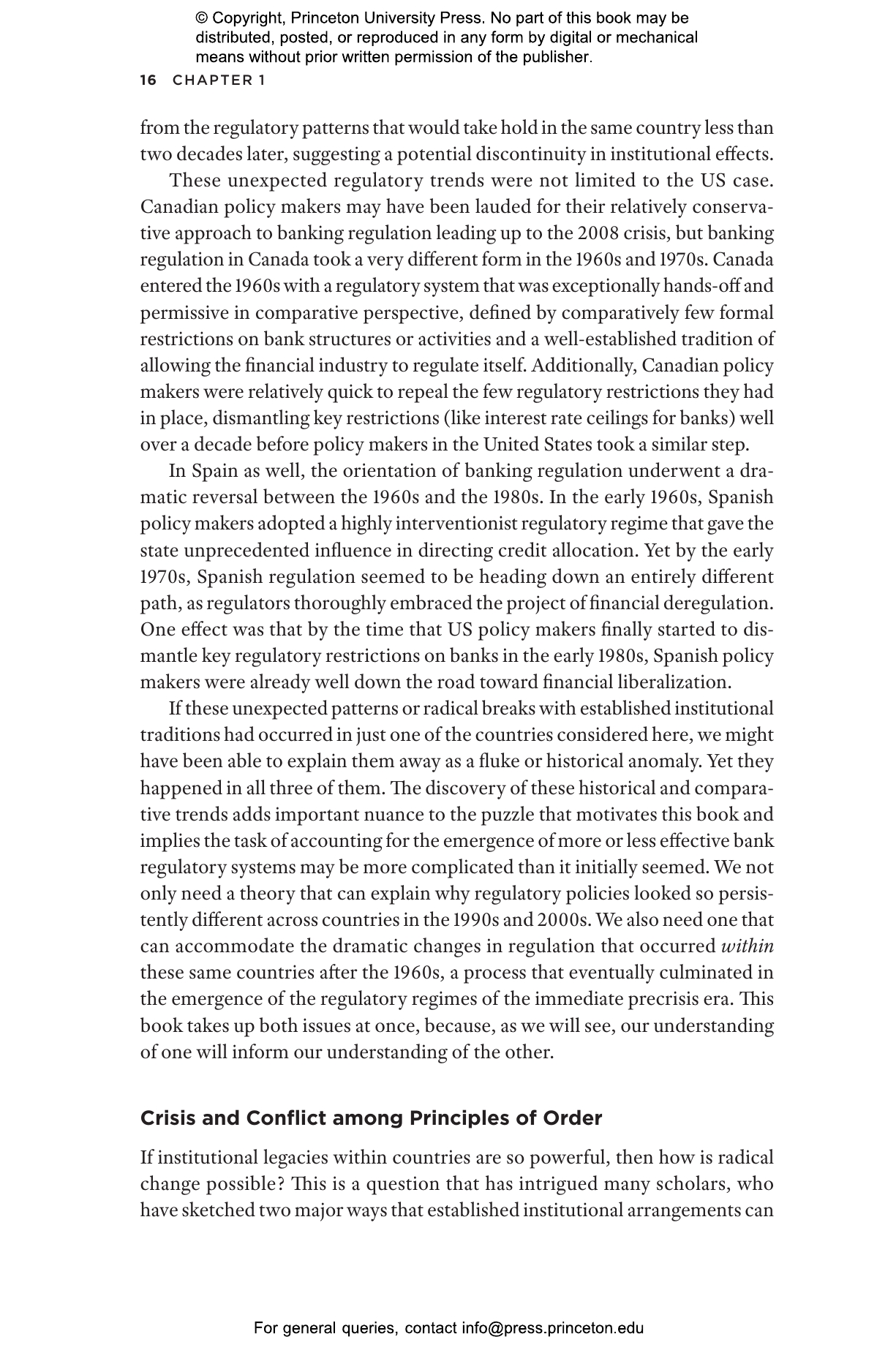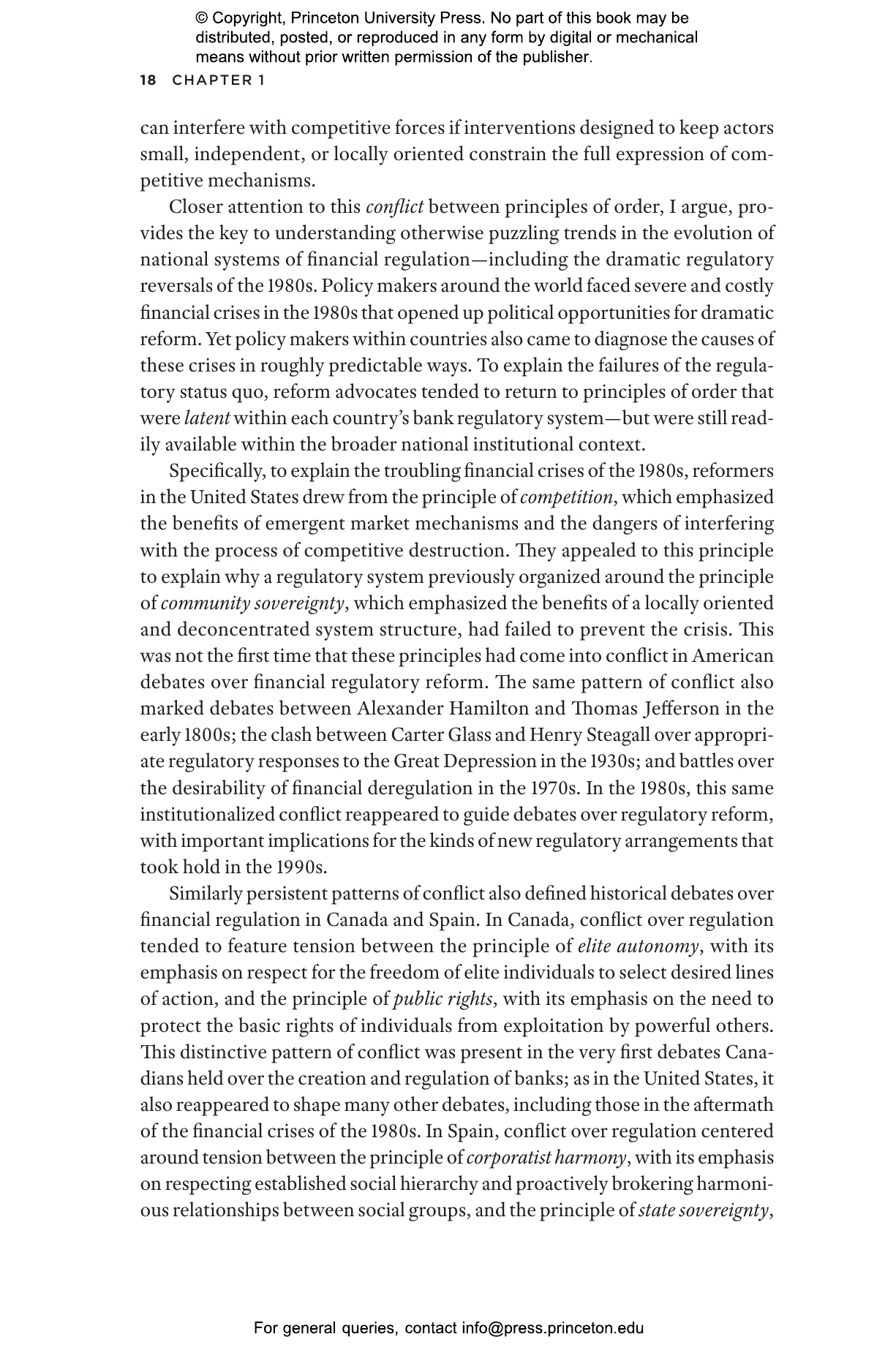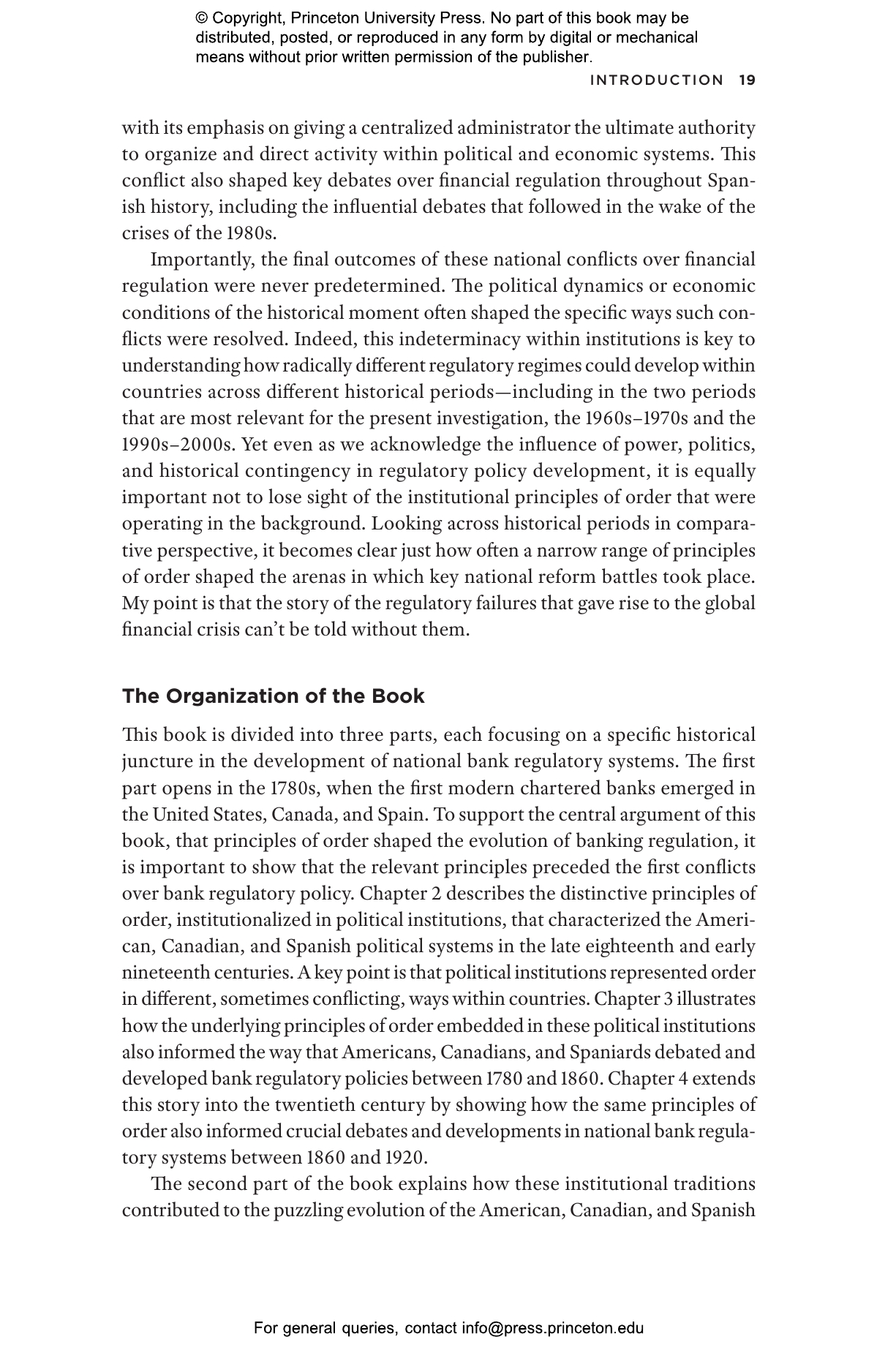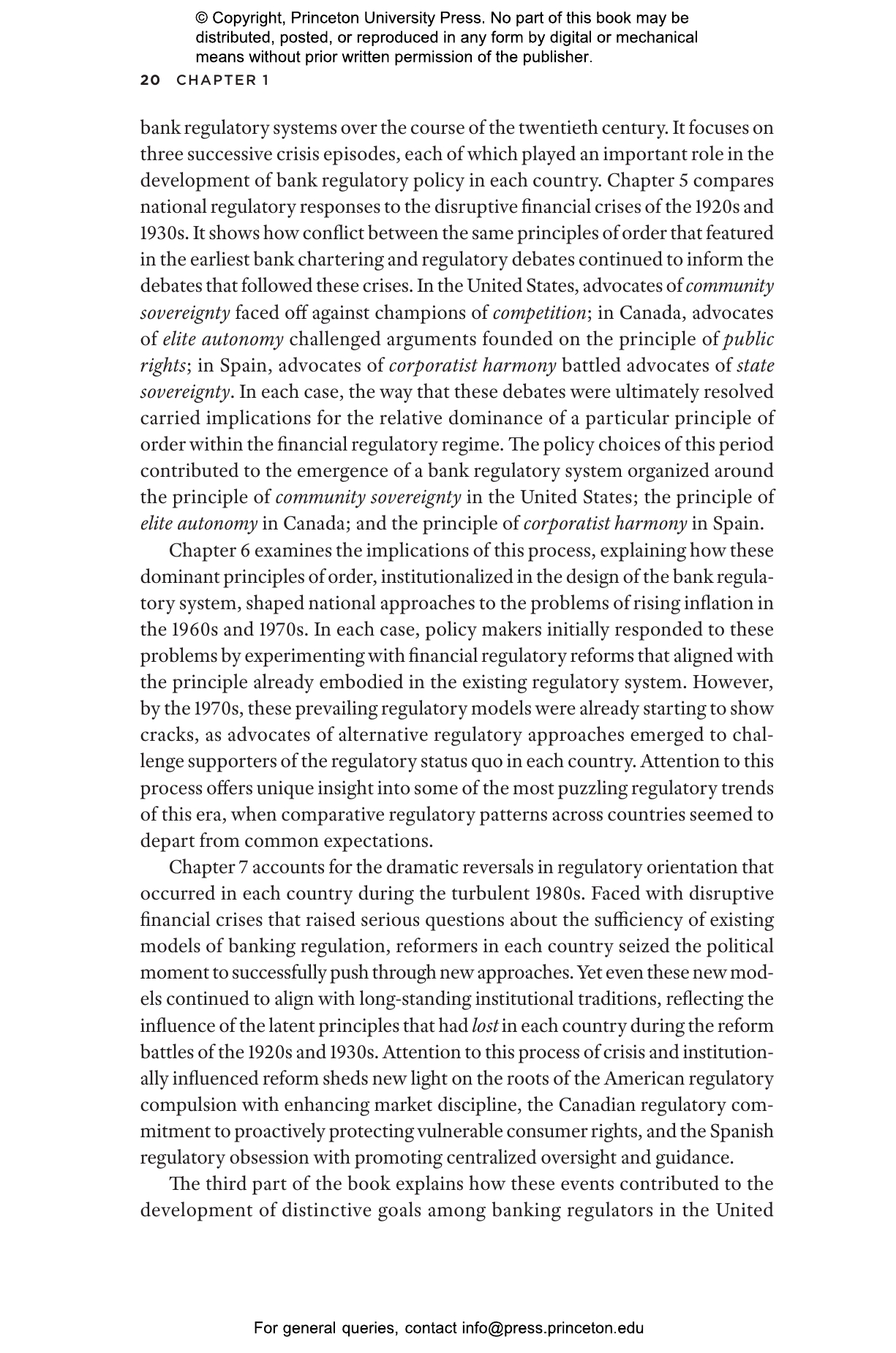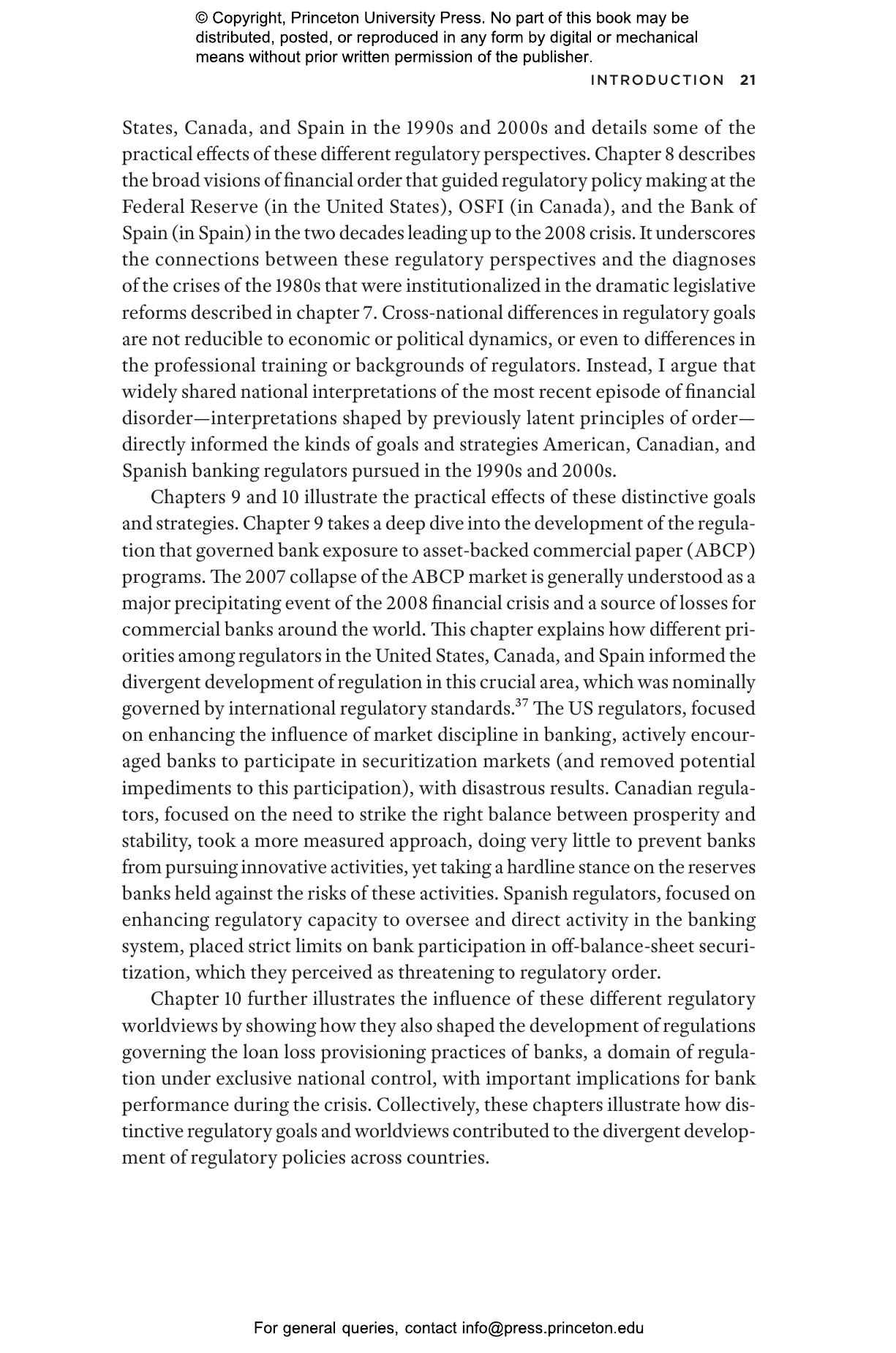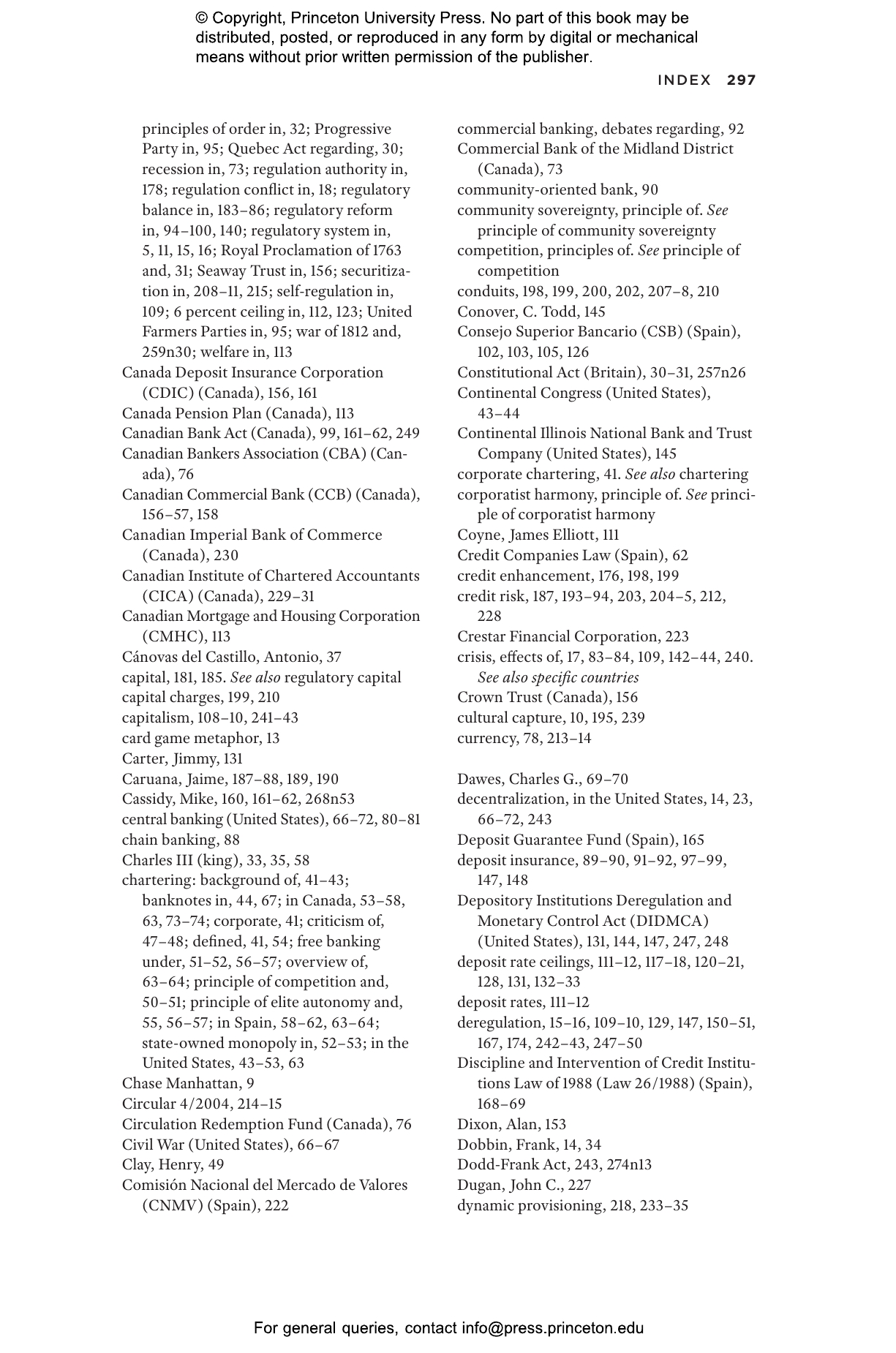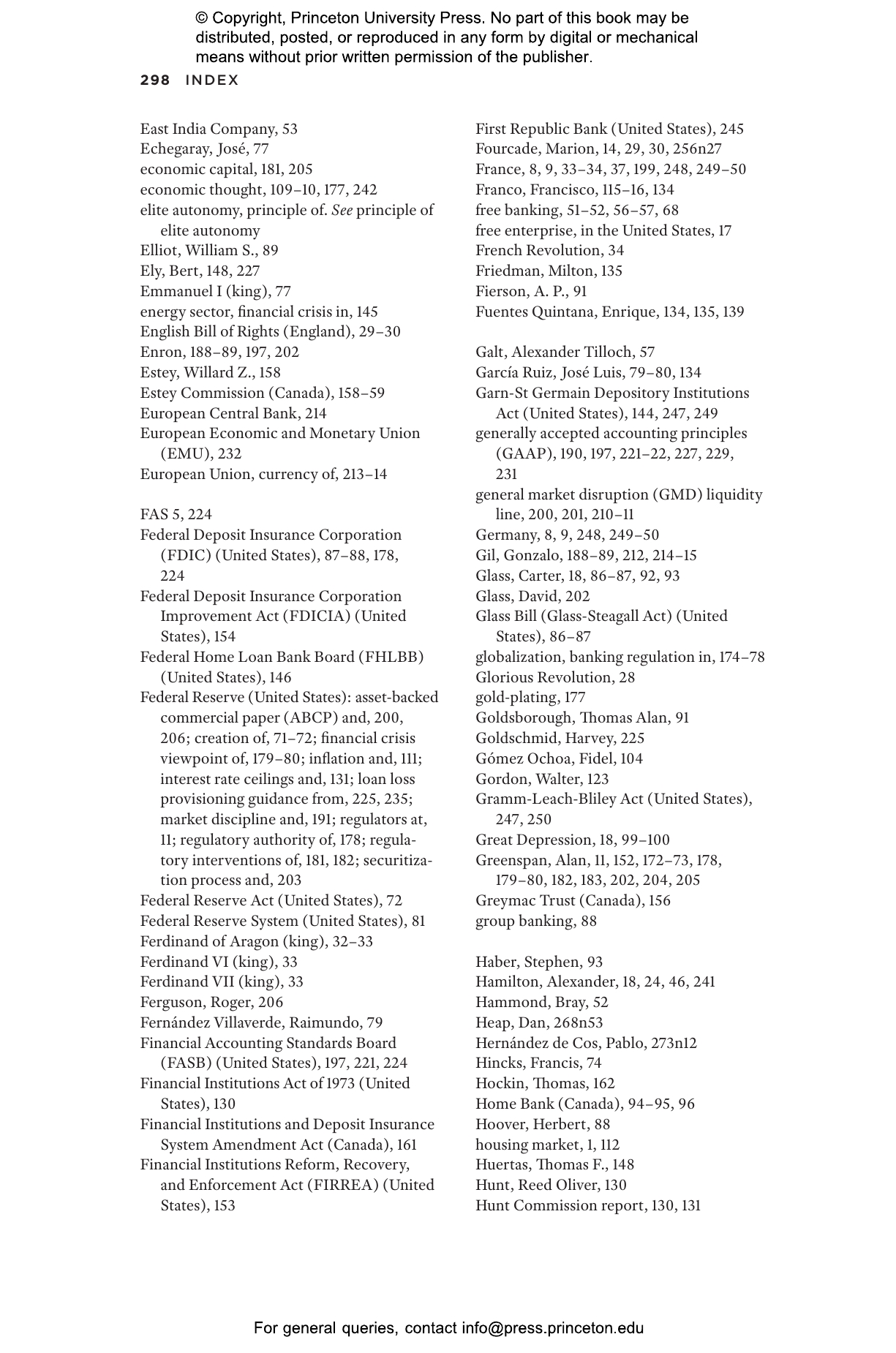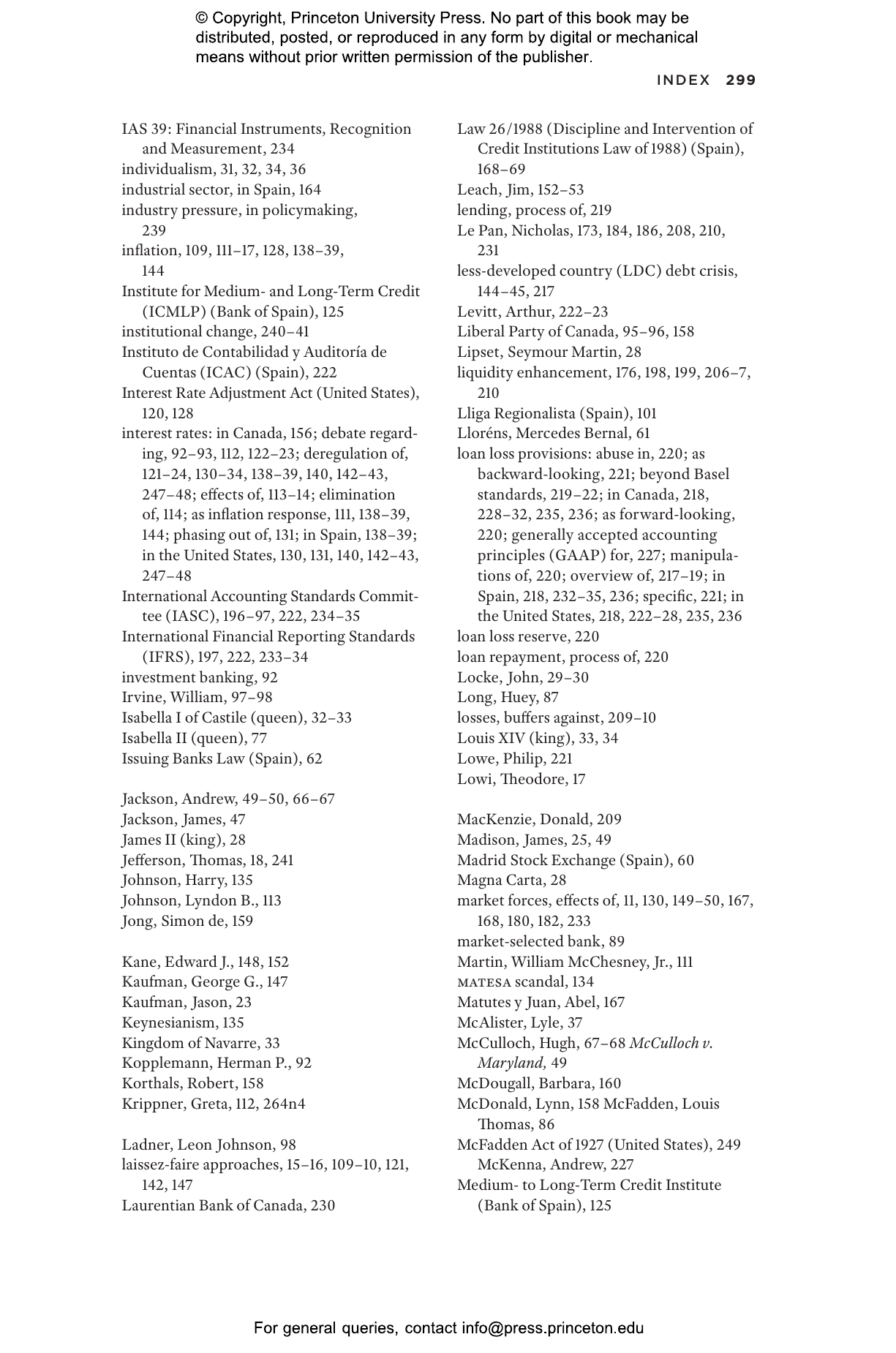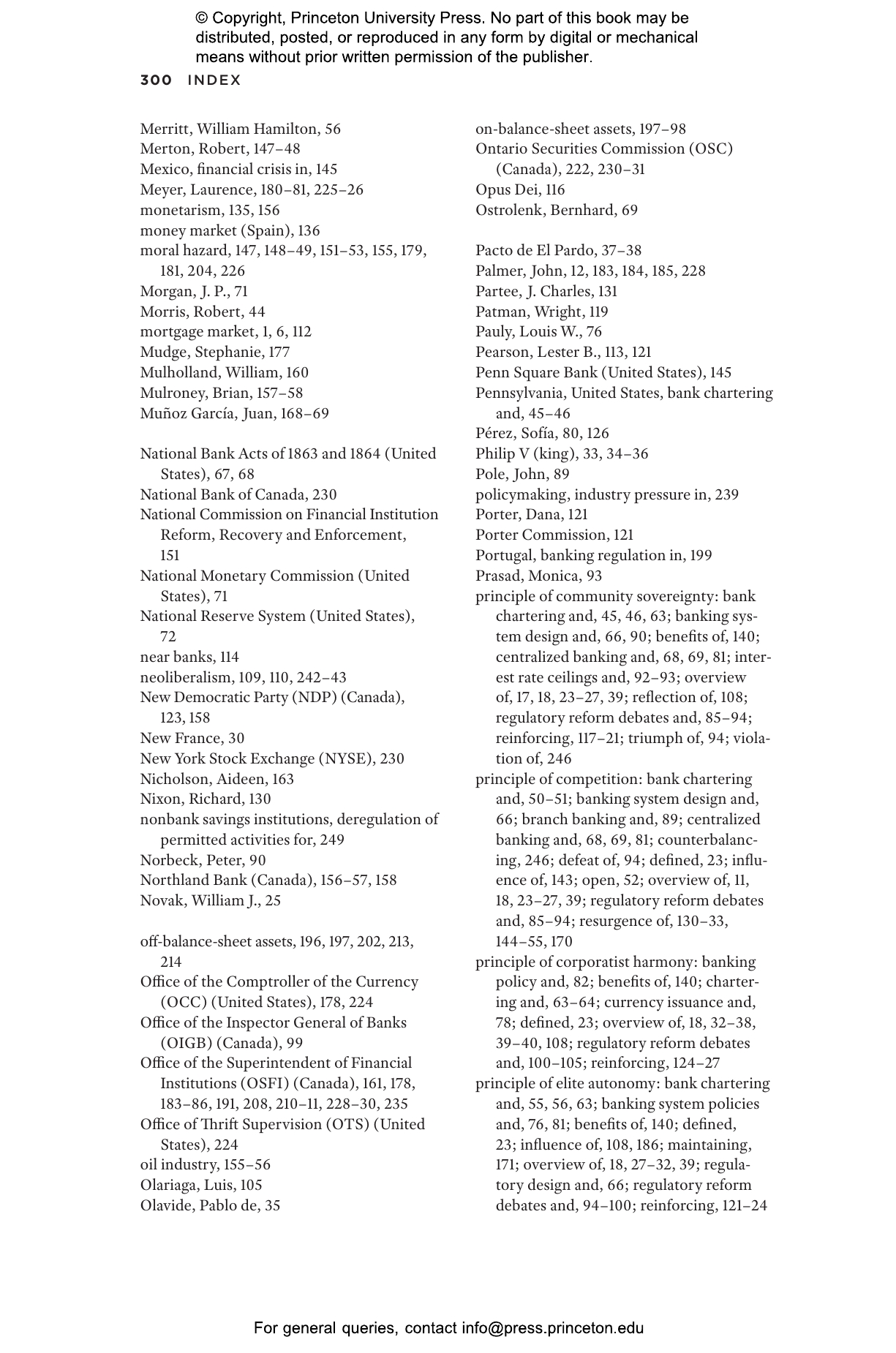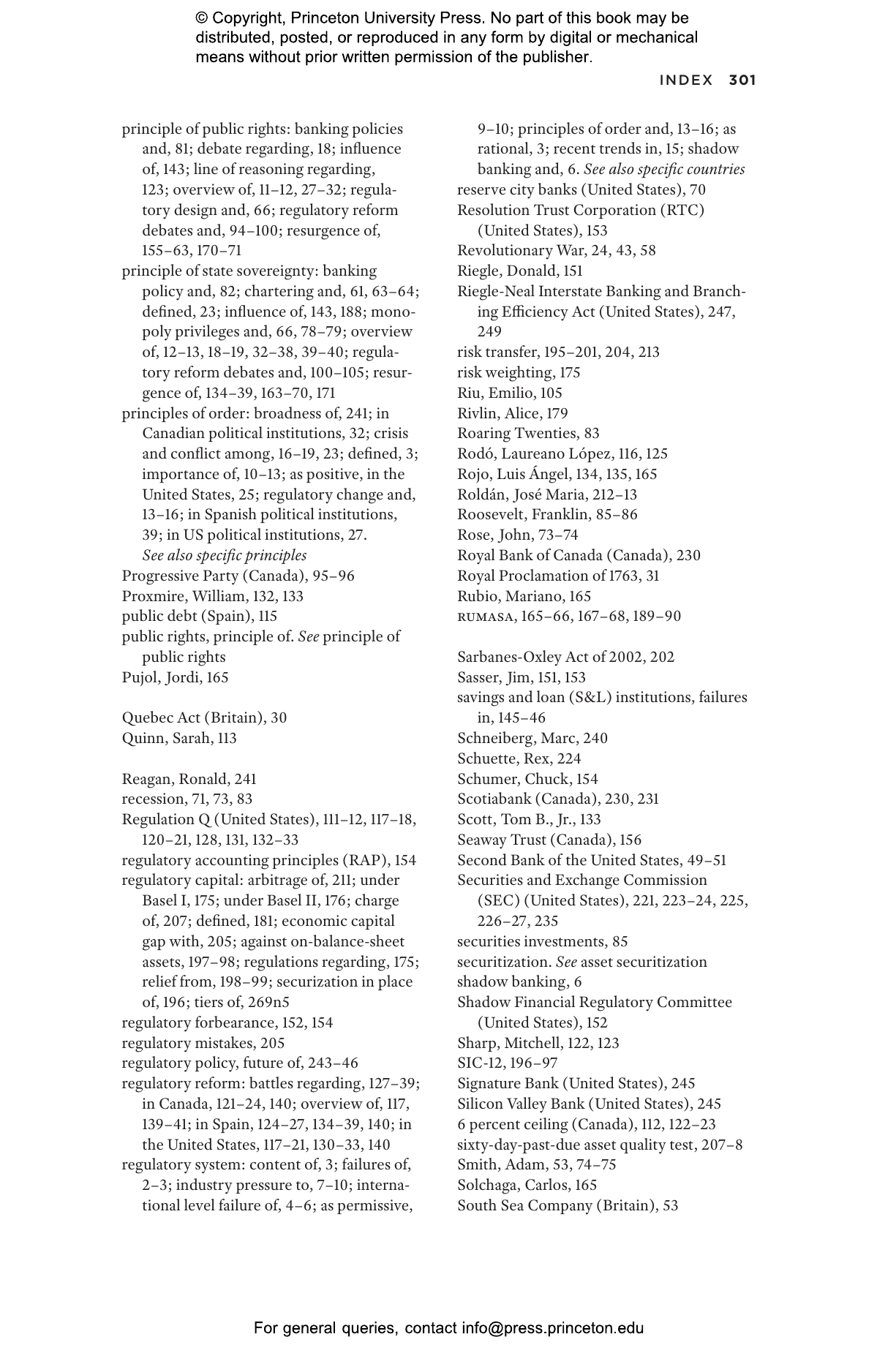Visions of Financial Order: National Institutions and the Development of Banking Regulation


Hardcover
Paperback
- Price:
- $33.00/£28.00
- ISBN:
- Published:
- Aug 13, 2024
- Copyright:
- 2024
- Pages:
- 320
- Size:
- 6.13 x 9.25 in.
- 5 b/w illus. 6 tables.
- Main_subject:
- Sociology
ebook
The global financial crisis of the late 2000s was marked by the failure of regulators to rein in risk-taking by banks. And yet regulatory issues varied from country to country, with some national financial regulatory systems proving more effective than others. In Visions of Financial Order, Kim Pernell traces the emergence of important national differences in financial regulation in the decades leading up to the crisis. To do so, she examines the cases of the United States, Canada, and Spain—three countries that subscribed to the same transnational regulatory framework (the Basel Capital Accord) but developed different regulatory policies in areas that would directly affect bank performance during the financial crisis.
In a broad historical analysis that extends from the rise of the first modern chartered banks in the 1780s through the major financial crises of the twentieth century and the Basel Capital Accord of 1988, Pernell shows how the different (and sometimes competing) principles of order embedded in each country’s regulatory and political institutions gave rise to distinctive visions of order and prosperity, which shaped subsequent financial regulatory design. Pernell argues that the different worldviews of national banking regulators reflected cultural beliefs about the ideal way to organize economic life to promote order, stability, and prosperity. Visions of Financial Order offers an innovative perspective on the persistent differences between regulatory institutions and the ways they shaped the unfolding of the 2008 global financial crisis.

